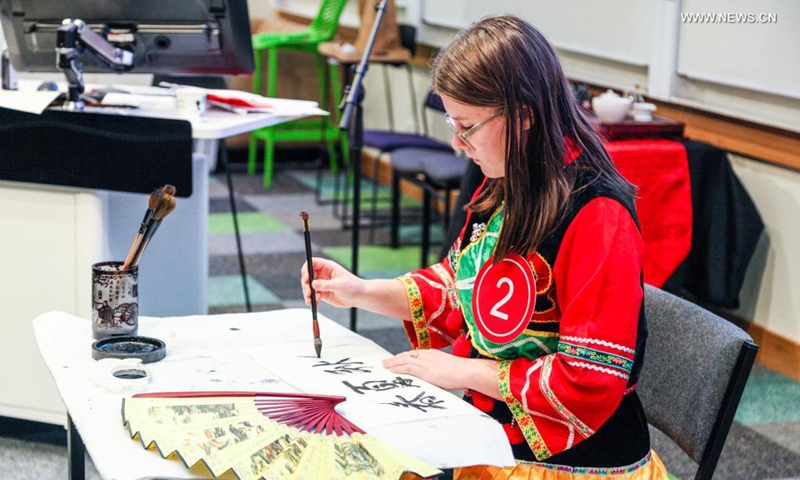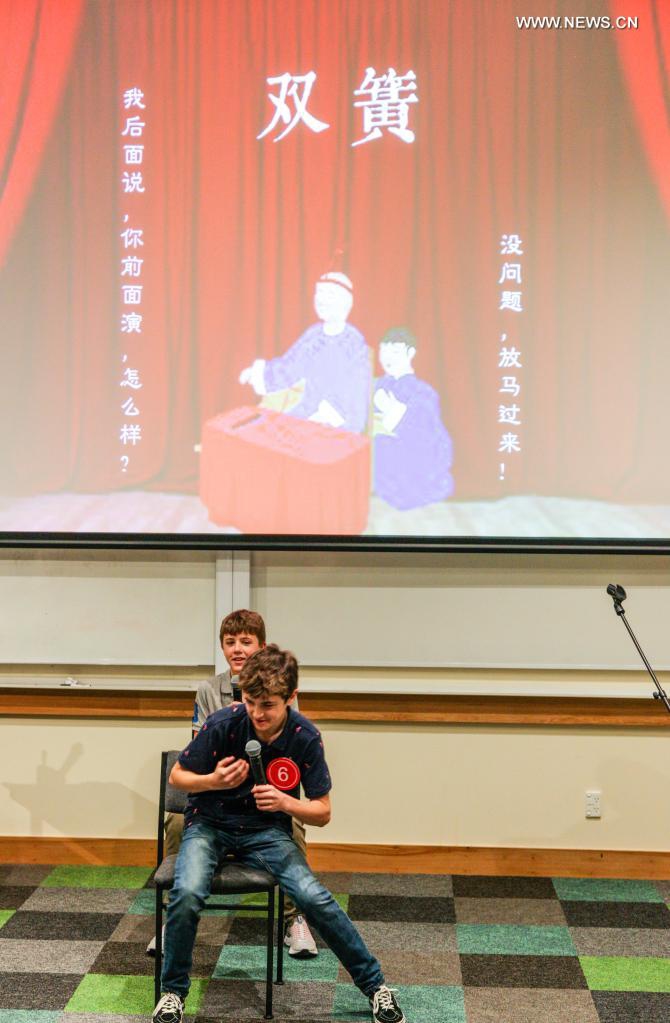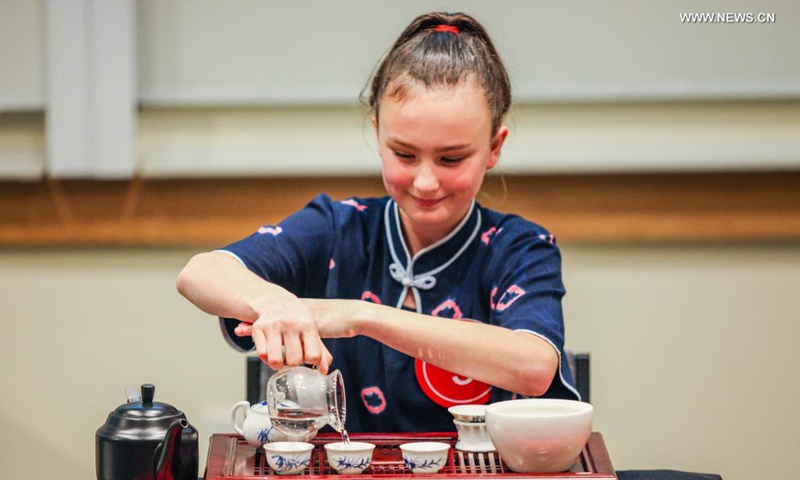
A contestant writes Chinese calligraphy during the 2021 Chinese Bridge Chinese Proficiency Competition in Christchurch, New Zealand, June 13, 2021. Photo: VCG

Contestants perform the Chinese style "double act," also known as a comedy duo or "Shuanghuang" in Chinese, during the 2021 Chinese Bridge Chinese Proficiency Competition in Christchurch, New Zealand, June 13, 2021. Photo: VCG

A contestant performs tea art during the 2021 Chinese Bridge Chinese Proficiency Competition in Christchurch, New Zealand, June 13, 2021. Photo: VCG
Harrison James Thomas sat in a chair on the center stage, his partner William Allot hid behind him. The two comedians performed together as a single act.
Allot suggested Thomas put one hand in his mouth, saying, "Bite, bite, bite hard!" Thomas did it according to Allot's suggestion, and then he realized he was tricked by his partner. In return, Thomas tricked Allot by asking him to do a series of silly gestures when it was Thomas' turn to stay behind to do the talking part.
The Chinese style "double act," also known as a comedy duo or "Shuanghuang" in Chinese, is commonly seen in many entertainment programs across China. However, it was not easy for two high school students in New Zealand to perform in the non-mother-tongue language, Chinese.
The performance of Allot and Thomas was applauded by the audience, especially their Chinese teacher Feng Huili.
"Traditional Chinese crosstalk and comedy duos, which is a window into the world of Chinese humor, required a high level of language skills," Feng, vice president of the New Zealand Chinese Language Teachers Association, told Xinhua.
"Although they found it challenging at first when they prepared for the contest, they soon enjoyed the performances and felt that their spoken Chinese skills had improved as a result," said Feng, who has been teaching Chinese in Christchurch Boy's High School for more than 20 years.
The comedy duo was not the only highlight of the 2021 Chinese Bridge Chinese Proficiency Competition held on Sunday in New Zealand's Christchurch. Lucas McGillivray did a Chinese style stand-up comedy, or "Xiangsheng" in Chinese, during the talent show part of the contest.
The comedic Chinese "Xiangsheng" involving crosstalk usually takes the form of a dialogue between two performers, however, it can be also performed as a solo monologue.
Over the years, the format has begun to gain popularity in the West too. For some, it offers an opportunity to learn the language. For others, the format provides an insight into the Chinese culture and sense of humor.
"I would recommend different options for my students to do in the talent shows, based on their language skills and personality, and the students made their own choices," Feng said.
Three of her students have chosen to do the most difficult ones -- comedy duo and crosstalk. It was rewarding as students' Chinese language skills improved greatly after the practices, she said.
Allot, Thomas, McGillivray and nine other contestants entered the national final competition to be held on Aug. 8 in Christchurch. An international competition will be held later this year.
On Sunday, about 20 secondary school students from various South Island schools competed in the regional final. Performances at the talent show included Chinese crosstalk and double act that made people laugh, as well as singing, dancing, calligraphy, Kungfu and tea culture.
Chinese Consul General in Christchurch Wang Zhijian said at the awarding ceremony that the competition demonstrated the children's great passion for learning Chinese.
"Learning Chinese well will not only open doors to the 5,000-year-old Chinese history and culture, but also enable you to have a brighter career future," Wang noted.
China is currently the biggest trading partner to more than 120 countries, including New Zealand. "A Kiwi student who has a working knowledge of Chinese is surely to have excellent employment prospects," Wang said.
